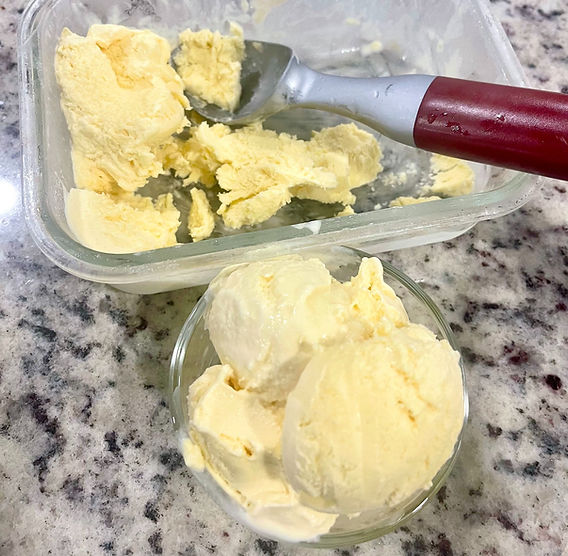
Practical Guide to Lizard Diet for Healthy Growth in 2025
Lizards are fascinating reptiles that inhabit various environments around the world, and each species thrives on specific dietary needs that can greatly influence their health and growth. Understanding what do lizards eat and ensuring they have a balanced lizard diet is crucial for their well-being. Whether you're a seasoned reptile owner or a curious beginner, knowing the best practices for lizard care and nutrition can lead to happier, healthier pets.
This guide will explore lizard feeding habits, the types of lizard food available, and practical tips for providing quality nutrition tailored to different lizard species. We will delve into the dietary preferences of insectivorous lizards, herbivorous lizards, and omnivorous varieties, providing insights into how to best meet their lizard dietary needs.
Additionally, we will cover common mistakes to avoid when feeding lizards, the importance of hydration, and how to create effective lizard meal plans. By the end of this guide, you will have a comprehensive understanding of lizard food sources and the knowledge required to maintain lizard health through proper diet.
Let's begin our journey into the world of lizard diets, starting with the basics of lizard nutrition.
Understanding Lizard Diets and Nutrition
Overview of Lizard Dietary Needs
Understanding lizard diet is essential for keeping your pet healthy. Each species of lizard has unique nutritional requirements that stem from their natural habitats and diets in the wild. For instance, insectivorous lizards primarily consume insects, while herbivorous lizards thrive on plant matter. Omnivorous species will have a combination of both, making it essential for owners to recognize their specific lizard species and its feeding habits.
The Importance of a Balanced Diet for Lizards
A balanced diet plays a critical role in a lizard's overall health and well-being. Proper nutrition affects their growth, skin health, reproductive capabilities, and lifespan. For example, many lizards require calcium and vitamin D3 to maintain bone health, which is often acquired through a varied diet that includes insects and greens. A lack of these vital nutrients can lead to metabolic bone disease, a common issue in captive lizards.
Types of Lizard Food Sources
When it comes to lizard food, there are several options to consider. Common lizard food sources include:
- Insects: Crickets, mealworms, and roaches are popular choices for insectivorous lizards.
- Vegetables: Leafy greens, squash, and carrots are excellent for herbivorous lizards.
- Commercial Diets: Pellets designed for specific lizard species can provide a balanced nutritional base.
- Fruits: Certain fruits like bananas and berries can be offered as treats.
Feeding Habits and Schedules for Lizards
Feeding Frequency and Portions
Establishing a lizard feeding schedule is key to maintaining their health. Young, growing lizards typically require more frequent feedings compared to adults. For juvenile lizards, feeding them every day is essential for proper growth, while adult lizards may only need food every other day. It's important to adjust the size of portions according to the lizard's age, size, and species.
Common Feeding Techniques for Lizards
Different lizards have unique feeding techniques that owners should study. For example, some lizards may prefer hunting live prey, while others may accept pre-killed or chopped food. Understanding your lizard's feeding behavior will help reduce stress during feeding times and ensure they are receiving the necessary nutrition. Training your lizard by offering food in varied manners can also stimulate their natural behaviors.
Preventing Common Feeding Mistakes
When feeding lizards, certain mistakes can hinder their health. Overfeeding, offering inappropriate food types, or neglecting hydration can all result in health issues. Always ensure the food is appropriately sized — larger species may require larger insects, while smaller lizards do well with appropriately sized crickets or fruit pieces.
Choosing the Right Food for Different Lizard Species
Insectivorous Lizards: Best Food Choices
Insectivorous lizards primarily eat insects and benefit from a diet rich in protein. Foods like crickets, dubia roaches, and wax worms should form the cornerstone of their diet. These insects are high in protein and can help promote healthy growth and behavioral health in lizards. It's crucial to provide variety within insect choices to meet their lizard nutrition needs effectively.
Herbivorous Lizards: Safe Food Options
Herbivorous lizards thrive on green, leafy vegetables. Popular choices include collard greens, dandelion leaves, and kale. It’s important to chop foods adequately to ensure easier consumption. In addition to greens, high-calcium vegetables such as squash and bell peppers can diversify their diet, providing essential vitamins and minerals.
Omnivorous Lizards: Balancing Plant and Animal Matter
Omnivorous lizards require a balanced intake of both insects and plants. These lizards benefit from diverse food options, so combining insects with fruits and vegetables is ideal. A meal plan may include flour worms along with leafy greens or occasional servings of fruits like mango, providing a well-rounded diet.
Nutritional Guidelines and Supplements for Lizards
Essential Nutritional Requirements
Each lizard species has distinct nutritional needs. For all lizards, calcium and vitamin D3 are critical. Omnivorous and insectivorous lizards need more protein, while herbivorous lizards require higher fiber. Understanding these differences will better inform feeding lizards and enhance their health and well-being.
Offering Dietary Supplements
In captivity, lizards may not obtain all necessary nutrients from their diets. Supplements such as calcium powder and multi-vitamins can help fulfill their nutritional requirements. It's advisable to dust insects with a calcium supplement before feeding them to your lizard to help meet their dietary needs effectively.
Identifying Nutritional Deficiencies
Recognizing lizard health issues early signs of nutritional deficiencies includes lethargy, improper shedding, or decreased appetite. Regular observation of your lizard's behavior and physical condition can help catch issues before they escalate. Consult with a veterinarian specializing in exotic pets for dietary recommendations tailored to your lizard.
Common Questions About Lizard Diets
What Should You Avoid Feeding Your Lizard?
Certain foods can be harmful or toxic to lizards, including citrus fruits, avocado, and any dairy products. It's crucial to research food safety and avoid anything that can cause digestive issues or toxicity.
How Can You Encourage Your Lizard to Eat?
If your lizard seems disinterested in food, consider offering smaller or varied food types. Incorporating insects and fruits into their diet, along with trying different feeding methods, can often stimulate their appetite.
What Is the Best Lizard Diet for Breeding?
For breeding lizards, focus on diets rich in protein and calcium. Offering varied insects and high-quality greens during this period can help support reproductive health. Always pay attention to hydration and overall balanced nutrition.

